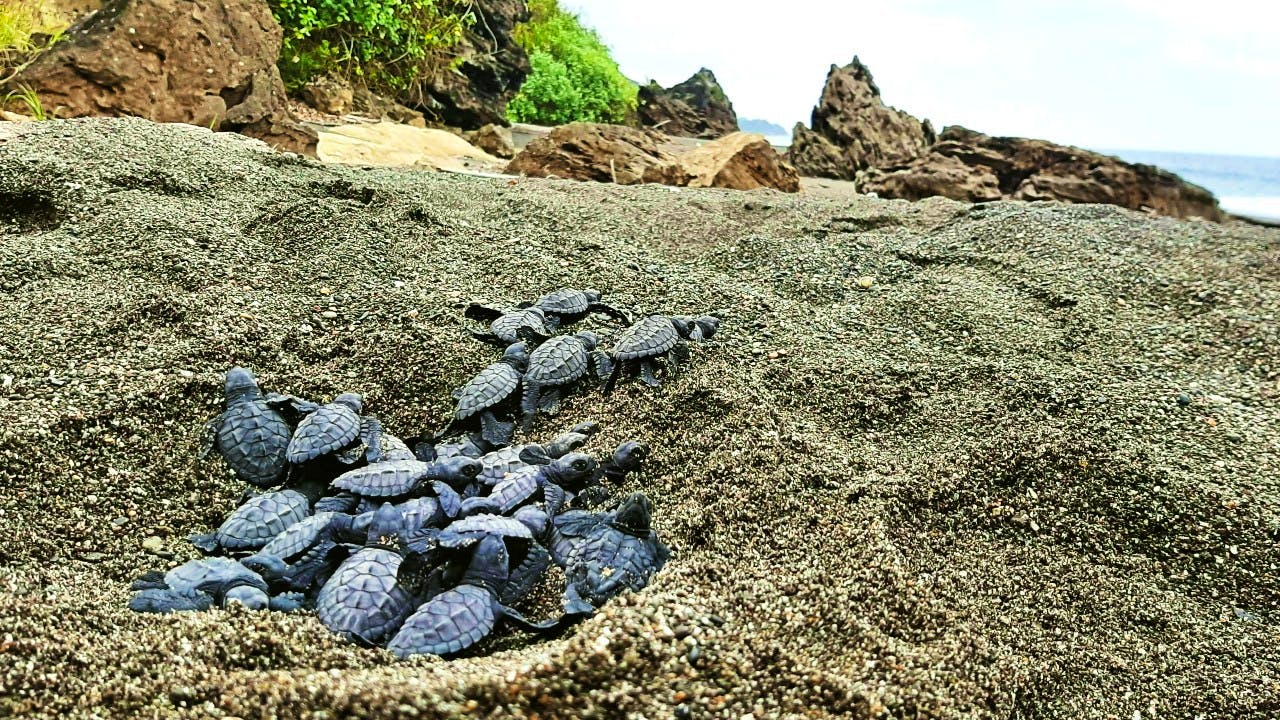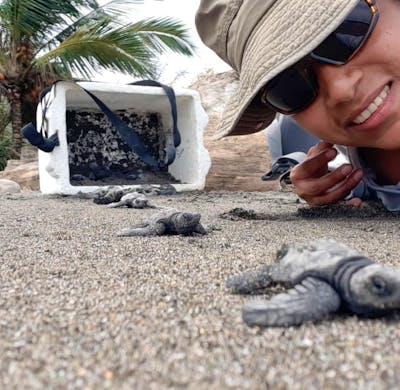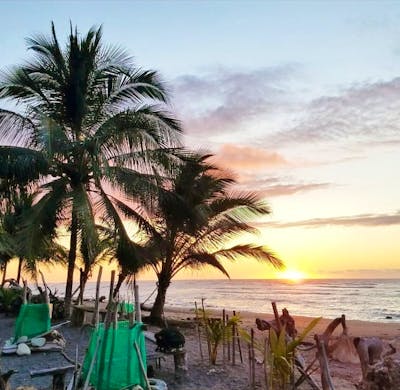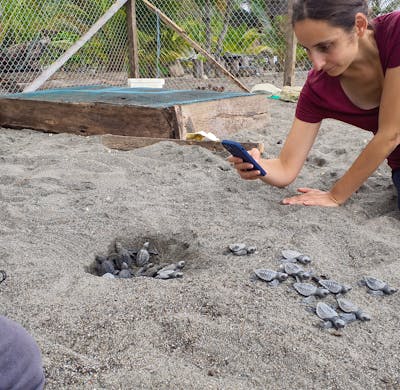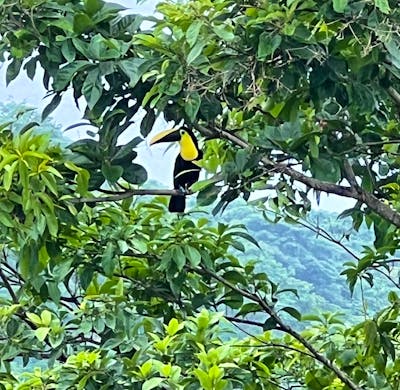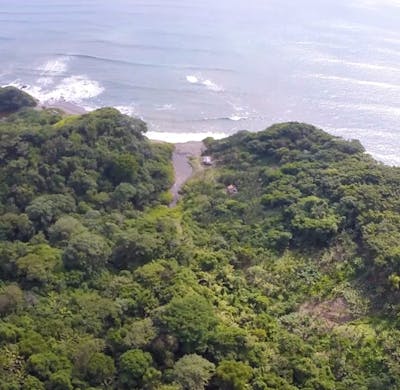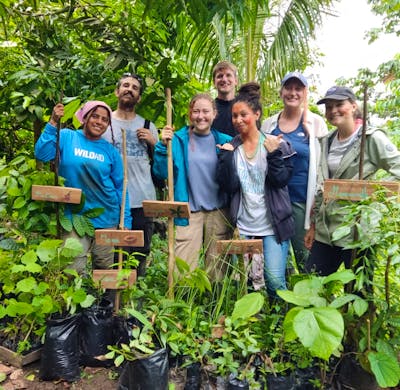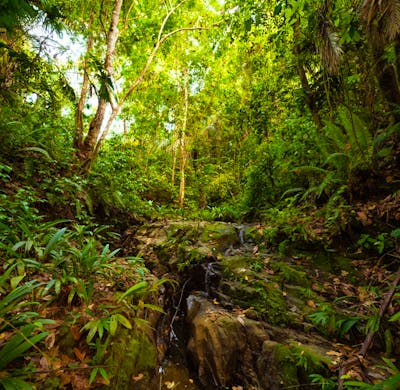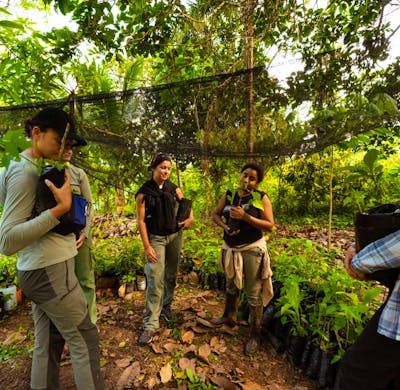Sea Turtle & Rainforest Conservation
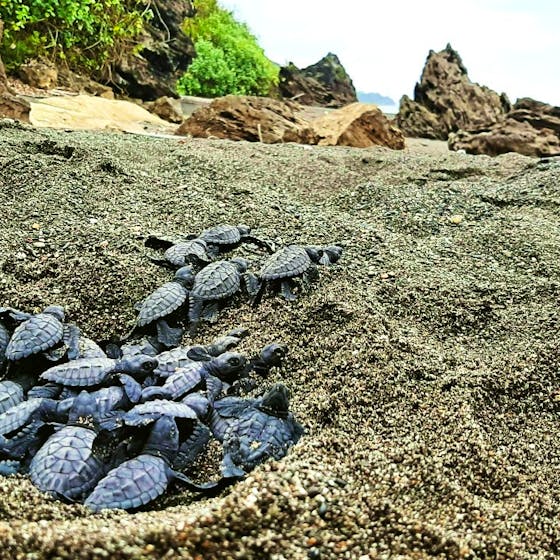
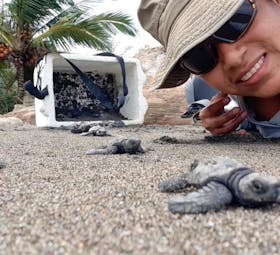
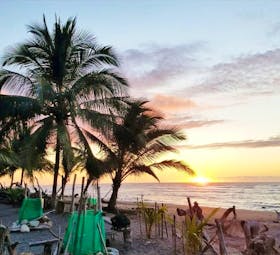
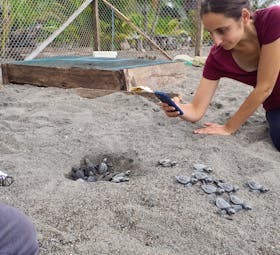

Clou
- Support a real conservation project with the only non-profit in the area working specifically to protect a unique Marine Reserve and thelast remnants of coastal Chocó rainforest.
- Acquire the necessary knowledge and skills to get involved in sea turtle conservation actions, such as monitoring nesting beaches for protecting nests as collecting and classifying plastic.
- Support for the conservation of coastal rainforests learning on tropical permaculture and working in regenerative cacao farms/agroforestry systems alongside real ecological farmers.
- Live an amazing cultural experience living in the jungle and by getting involved in conservation projects with local communities and their youth.
- Enjoy northern Ecuadorian coast with famous beaches of Same and Mompiche only 1h30 away. On the weekends, you can surf or have an amazing trip by boat through the mangroves forests.
- Support a real conservation project with the only non-profit in the area working specifically to protect a unique Marine Reserve and thelast remnants of coastal Chocó rainforest.
- Acquire the necessary knowledge and skills to get involved in sea turtle conservation actions, such as monitoring nesting beaches for protecting nests as collecting and classifying plastic.
- Support for the conservation of coastal rainforests learning on tropical permaculture and working in regenerative cacao farms/agroforestry systems alongside real ecological farmers.
Particulièrement approprié pour
À propos du programme
Volunteers support is essential to protect the marine reserve and the last coastal Chocó rainforests in Ecuador.
We are a local non-profit organization dedicated to the conservation of the last Ecuadorian coastal Chocó rainforests and the threatened species within the Galera-San Francisco Marine Reserve, with a special focus on sea turtles. Our team is comprised of a multicultural and multidisciplinary group ...
Journée typique
Activités de loisirs
Volunteers can enjoy travelling the surrounding communities to have an amazing cultural experience, enjoy incredible food and visit different beautiful beaches. Most volunteers use some of their free time to learn surfing (classes 2h, $25). There are a few turistic towns in the neareby (Same 1h, ...
Conditions
Services inclus
NE SONT inclus dans le prix:
Informations sur l'arrivée
Volunteers must travel to Quito (Ecuador). Once in Quito, there are 2 options to make it to the project site:
The total duration of this option should be around 10h and the cost around $75.
Option 2. Private transfer: You can travel with a private transport that would pick you up at the airport (or hotel) in Quito and will travel straight to the project site. The duration of this trip is 7h and the cost is $220.
If your flight landing time is over 11am, we reccommend to spend the night in Quito and travell the next morning to avoid travelling at night and arriving too late to the station. You can find nice affordable options in Booking to spend the night in a hostel near the airport or bus station. We can also suggest some options in case you need some advice.
You may arrive to the camp the day of the week that suits you better.
Frais de Programme
Rencontrez votre hôte
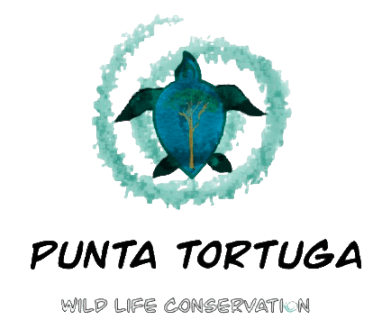
Punta Tortuga Wildlife Conserv
Agence - fondée en 2019
Vérifié par Volunteer World
Hébergé par
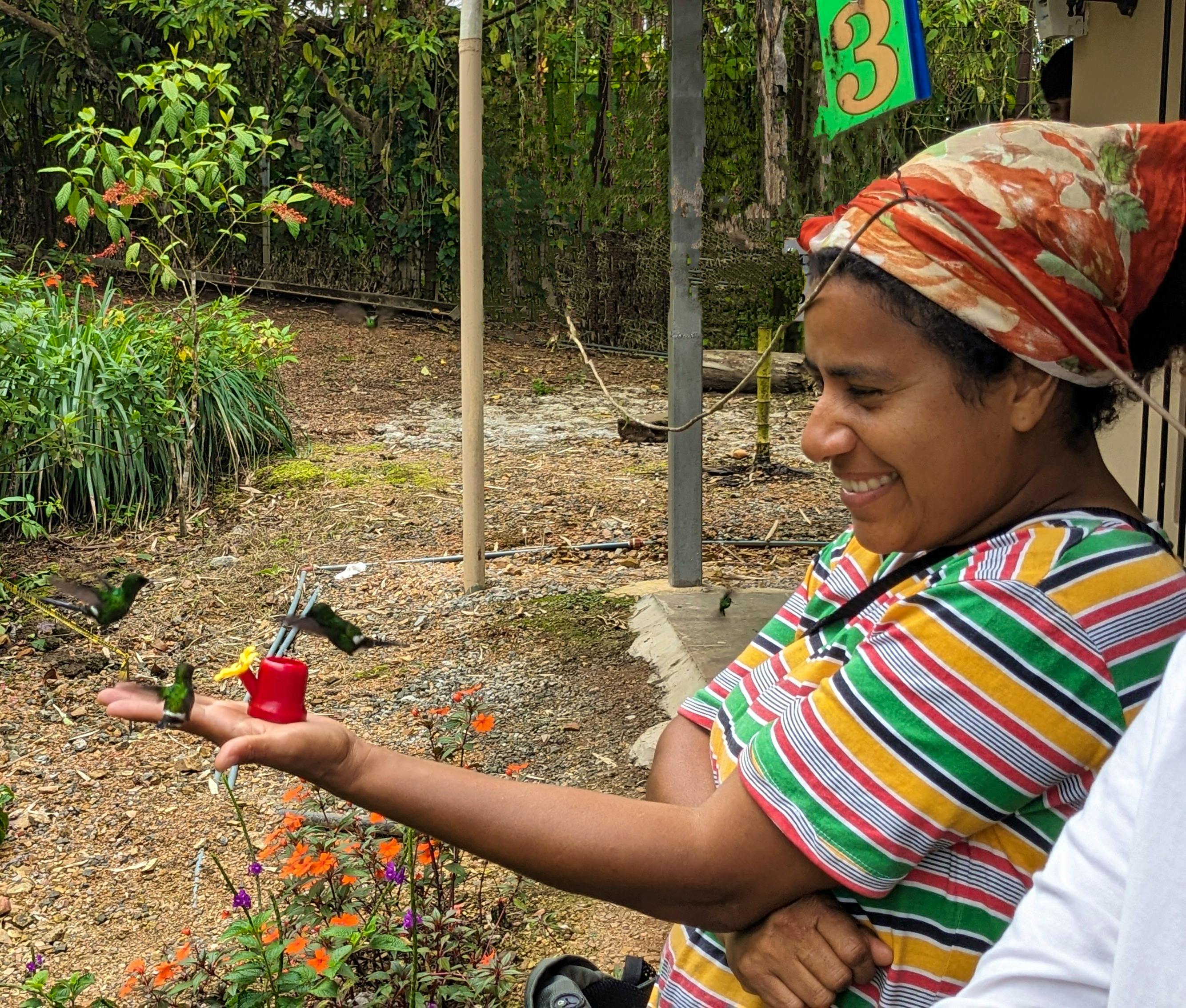
Andrea
Sur le projet
44 avis ·  4.8
4.8
Emplacement

Ces projets pourraient t'intéresser aussi
-
Plantation des arbres
Reforestation
Preservation des tortues de mer
Missions de courte duree
Groupe
Les meilleurs programmes de bénévolat
Couple
Projets a l´etranger
Mission humanitaire en anglais
Mission Humanitaire pour les etudiants
Adulte
Amerique Latine
Famille
Plus de 50 ans
